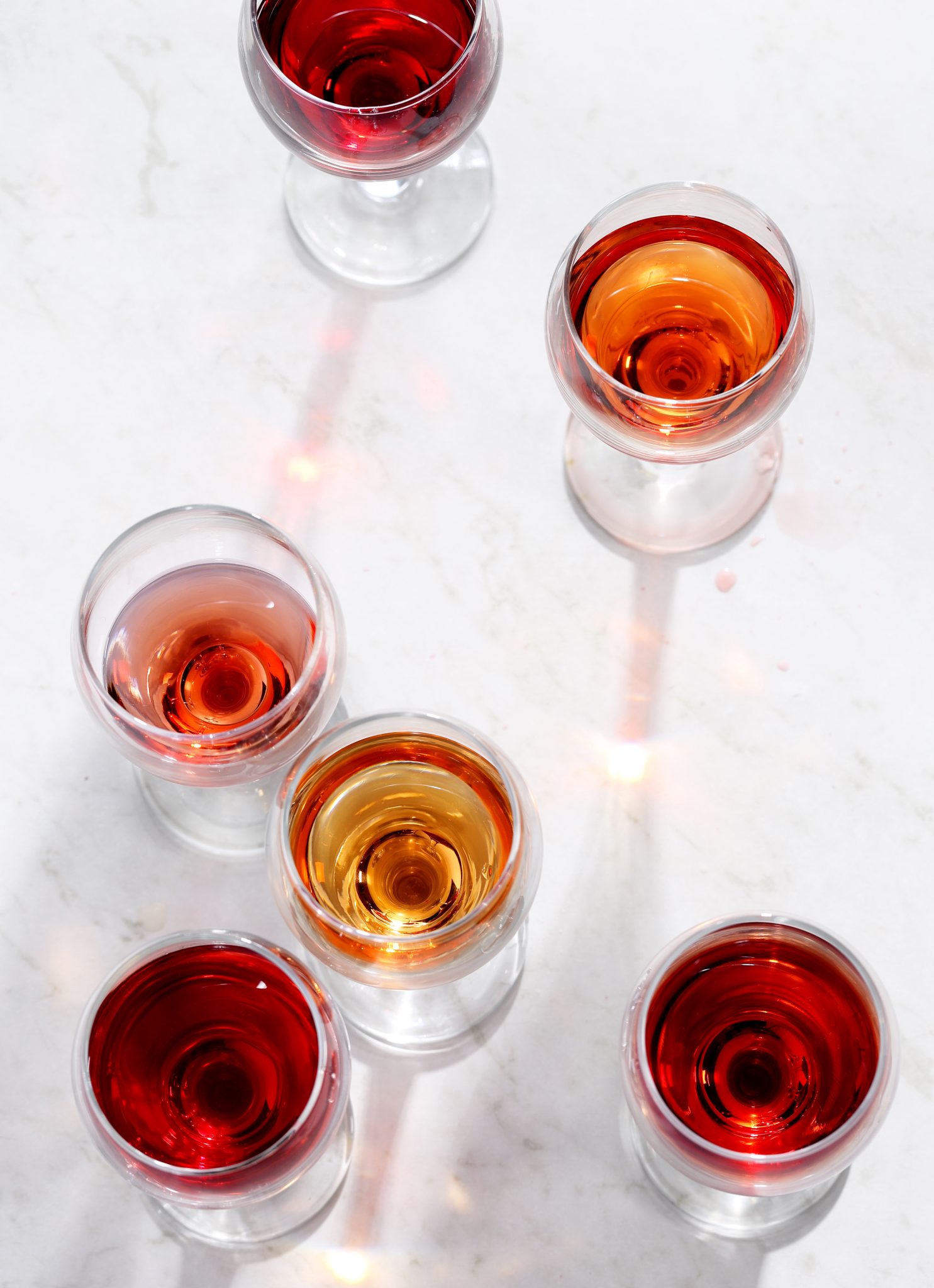I’m Sarah, a Naturopathic Doctor, wellness enthusiast and health-foodie. I’m a well-being advocate and green kitchen guru who is living my true purpose while guiding patients through their personal health journeys. I’m also a complete and utter health food fanatic who wants to see everyone benefit from eating healing foods!
August 3, 2019 By Sarah White No Comments

This Doctor’s Guide to Organic Wine
There’s nothing like relaxing on a patio in the summer time while sipping a crisp glass of rosé, or curling up on the couch with a great book and a glass of rich red wine in the fall. I practice what I preach and would never ask my patients to forgo their wine, all I ask is that you choose your brew wisely. Quality is key when it comes to wine, which is why I advise my patients to opt for natural, biodynamic, or organic wines whenever possible.
If you routinely justify that nightly glass of wine because it’s “full of antioxidants” and “great for your heart” then you may be surprised to learn that non-organic wines have significantly lower levels of the key antioxidant resveratrol and are likely doing more harm than good. Legally, wine companies can add up to 76 different FDA-approved additives to their wines including toxic chemicals, sugars, animal byproducts and heavy metals. As a result, conventionally grown and processed wines are often filled with additives like sugar, nitrites, pesticides & yeast.
Conventionally grown wine grapes are also one of the most heavily pesticide-treated crops in North America. Grapes are currently sitting on the environmental working group’s “Dirty Dozen” list because a single conventional grape may contain up to 15 different types of pesticides. Almost all conventionally grown grapes are produced using Monsanto’s Roundup herbicide (especially those California wines), whose active ingredient glyphosate is a potential carcinogen and definite gut-disruptor. These harmful pesticides are further concentrated during the fermentation process resulting in a glass of wine that’s mostly toxic chemicals with a tiny splash of antioxidants. This is why it’s so important to stick with natural & organic wines, especially if you’re having a glass most nights with dinner.
Organic wine is 100% juice from organic grapes fermented into wine. Organic wine producers don’t use any additives or harmful pesticides in their wine making process and must adhere to strict standards when growing, harvesting and processing grapes. Organic wines are also free of sulfites, a preservative by product of petrochemical manufacturing. Similar to food products, organic wine is widely regulated in both North America and Europe.
Biodynamic wines also follow organic farming principles but growers take extra care to farm their grapes with practices that are in sync with nature and preserve the natural environment. This means rotating the grapes, enhancing soil quality by natural methods and promoting sustainability. As a result, biodynamic wines are free of pesticides and typically contain more nutrients due to high quality, mineral-rich growing conditions.
Natural wines are living products that contain beneficial bacteria and a greater concentration of bioactive nutrients. While most alcohol is bad for the gut lining the active probiotics from the fermentation process can actually have favourable effects on the microbiome. The probiotic bacteria found in natural wines can help to decrease inflammation, improve immunity and preserve gut integrity. While natural wines are arguably the ‘healthiest’ option they tend to be cloudy and rich in sediment which can be off-putting to wine drinkers used to a smooth and light glass of wine.


Dr. Sarah White is a Naturopathic Doctor, Integrative health expert and the founder + CEO of This Doctor’s Kitchen — your evidence-based resource for all things health and wellness. Dr. Sarah takes a food-first approach to health with a focus in fertility, longevity and natural beauty. She is recognized as an expert in women’s hormones, thyroid health and anti-aging. Dr. Sarah is a published health author with features in Elle Canada, Best Health, EcoParent & Whole Family magazine.